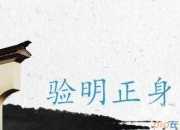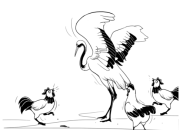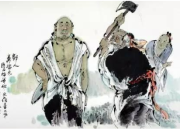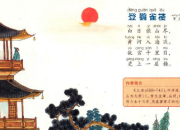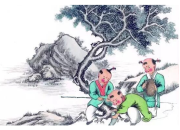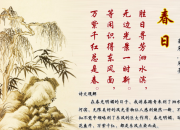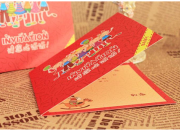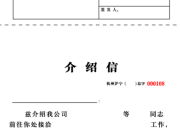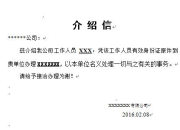高一英语公开课课件
时间:2021-08-31高一英语公开课课件
【一】分词作状语的区别
(1)现在分词与过去分词作状语的区别。
现在分词做状语与过去分词做状语的最主要区别在于两者与所修饰的主语的主动与被动关系的区别。
1)现在分词作状语时,现在分词的动作就是句子主语的动作,它们之间的关系是主动关系。
He went out ,shutting the door behind him.
他出去后将门随手关上。
Not knowing what to do, he went to his parents for help.
由于不知如何办是好,他去找父母帮忙。
2)过去分词作状语时,过去分词表示的动作是句子主语承受的动作,它们之间的关系是被动关系。
Given more attention, the trees could have grown better.
如果对这些树多关心一些,它们本来会长得更好。
Faced with difficulties, we must try to overcome them.
在遇到困难的时候,我们必须设法克服。
Caught in a heavy rain, he was all wet.
Given more encouragement, the boy could have behaved better
2)分词作状语放在句子开头,除表示原因之外有时表示时间或条件。动词不定式作状语时,除了表示目的以外,还表示结果或原因。
Reading attentively,he forgot the time for lunch.由于在专心读书,他忘了吃午饭的时间。(原因)
Reading carefully,he found something he had not known before.他仔细读书时,发现了一些从前不知道的东西。(时间)
Reading carefully,you'll learn something new.只要你仔细阅读,你会学到一些新的东西。(条件)
作宾补时,如果动词和宾语之间是主动关系,用现在分词; 如果是被动关系或者表示状态,用过去分词
we left him crying outside the gate.
we found his hands tied behind his back.
we found the world outside changed. 状态
用过去分词还是现在分词做定语的判断关键:名词与该动作的关系
【二】分词作定语的区别
1. 现在分词做定语:
从功能上看,现在分词做定语表示 1)主动(及物);2)进行(不及物)。
做定语:相当于一个定语从句 (主动)
Do you know the boy standing at the door?
à Do you know the boy who is standing at the door?
A developing country needs aids. àA country that/which is developing needs aids.
They lived in a house facing the south
àThey lived in a house that faced the south.
The man wearing a red tie is our head.
àThe man who wears a red tie(戴红领带) is our head.
The workers working in the factory are well-paid.
àThe workers who are working in the factory are well-paid.
在这家工厂工作的工人报酬很好
2.过去分词做定语
从功能上看,过去分词做定语表示1)被动(及物);2)完成(不及物)。
做定语:相当于一个定语从句(被动),有时侯也表示完成的
The broken window was repaired this morning.
The window broken yesterday was….
àThe window that/which was broken yesterday was…..昨天被打破的玻璃今早被修好了
The sold hamburgers are not to my taste.
The hamburgers sold in this chain are not to…..这家连锁店卖的汉堡不适合我的口味
The hamburgers that/which are sold in this chain are not to….
The arrived guests will be led in.(此过去分词表示完成)
The guests arrived just now will….刚到的客人将会被带进来
The guests who arrived just now will be….
The book that was written by Wang sells well.
àThe book written by Wang sells well.
The tie that is worn by our head is made in Shanghai.
àThe tie worn by our head is made in SH
The shoes (that were) made in a small factory are of bad quality.小厂产的鞋子质量差
反之,一个定语从句可以转化为分词做定语的结构
The man I introduced to you yesterday had just returned from Japan.
The man introduced to you by me yesterday had just…昨天我给你介绍的那人刚从日本回来
He is a man who is loved by all. à He is a man loved by all. 他是个大家所热爱的人
The leaves that have fallen are collected by the cleaners. àThe fallen leaves are collected…
That letter I received last week was from Li. à The letter received last week was from Li.
【三】状语从句的省略
一般说来省略现象多出现在下列五种状语从句中:由 when ,while ,as ,before, after , till, until, once等引导的时间状语从句;由whether ,if , unless 等引导的条件状语从句;由 though , although ,even if ,whatever等引导的让步状语从句;由 as ,than 等引导的比较状语从句;由as, as if , as though 等引导的方式状语从句。上述状语从句在省略时,并非任何成分都可以省略而是遵循下面原则:
(1)当状语从句的主语与主句的主语一致时且从句中含有BE动词的某种形式时,可以省略状语从句的主语和系动词be ,这时从句中可出现如下结构:
① 连词(as, as if , once)+ 名词
如:Once (he was)a worker ,Pang Long now becomes a famous singer .庞龙曾经是个工人,现在变成一位著名的歌手。
②连词( though, whether , when)+形容词
如:Work hard when (you are) young ,or you'll regret.趁年轻要努力学习,要不然你会后悔的。
③连词(whether, as if ,while )+介词短语
如:He looked everywhere as if (he was)in search of something .他到处看似乎在找什么东西。
④连词(when , while , though )+ 现在分词
如:While (he was) holding talks with President Hu Jintao , US President George W. Bush thanked China for its important role in the Six-Party Talks.美国总统布什在与主席会谈时,感谢中国在六方会谈中起的重要作用。
⑤ 连词(when ,if ,even if ,unless ,once ,until, than , as ) + 过去分词
如:The exhibition is more interesting than (it was) expected .这次展览比被预料的有趣的多
⑥ 连词(as if ,as though ) + 不定式
如:Olympic gold medallist hurdler Liu Xiang opened his lips as if (he were) to speak .奥林匹克金牌获得者跨栏运动员刘翔张开嘴好象要说什么。
(2)当从句的主语与主句的主语不一致,但从句主语是 it,从句中又含有系动词be 的某种形式时 ,可以把it和系动词be一起省略。。如:Unless (it is) necessary ,you'd better not refer to the dictionary.如果没有必要,你最好不要查字典。
各种状语从句的省略现象列举如下:
一、时间状语从句中的省略
When (she was) very young, she began to learn to play the piano. 她很小时,就开始学习弹钢琴。
While (I was) at college, I began to know him, a strange but able student. 我在上大学时就开始认识他,一个奇怪但有能力的学生。
When arriving, send me a telegram. (When you arrive, send me a telegram.) 到达之后,来个电报。
Before leaving, turn off all the lights. (Before you leave, turn off all the lights.) 走之前,请关闭所有的灯。
Don’t come in until (you are) asked to. 不叫你请你不要进来。
Whenever (it is )possible, you should come and help. 不管什么时候只要有可能就来帮忙。
You should let us know the result as soon as(it is) possible. 你应尽快让我们知道结果。
注:as在引导时间状语从句时,没有这种省略现象。我们不可说As walking, she found a nice shining thing on the ground.
二、地点状语从句中的省略
地点状语从句的省略常用下列结构:where(ver) possible, where(ver) necessary,
Lay these books where possible you can find them easily. 把这些书放在你可能容易找到的地方。
Put in articles wherever necessary in the following passages. 在下列文章中需要的地方填入冠词。
三、条件状语从句中的省略
常用的句型是:if necessary, if possible, if true, if anyone等。如:
Send the goods now if (they are) ready. 货物如果准备好了,请送过来。
He will come if (he is) asked. 如果叫他来,他就来。
If (it is) necessary, ring me at home. 如果有可能,朝我家里打电话。
Come along with me if (it is) possible. 如果有可能和我一起去吧.。
If (it is) true, this will casue us a lot of trouble. 如果是真的,这会给我们带来很多麻烦。
There are few people nowadays, if (there are) any, who remember him. 很少有人能记起他。
You should stay where you are, unless (you are) asked to leave. 你应呆在你现在的地方不动,除非叫你动。
四、让步状语从句中的省略
He is a good man, though sometimes (he is) rather dull. 他真是个好人,尽管有时有点无聊。
Even if (I am ) invited to, I won’t go to such a bad lecture. 即使邀我去,我都不想听如此坏的'报告。
五、比较状语从句中的省略
She can play the piano just as wonderfully as you (do). 她钢琴弹的我你弹的一样好。
She has finished the work earlier than (it has been ) expected.
